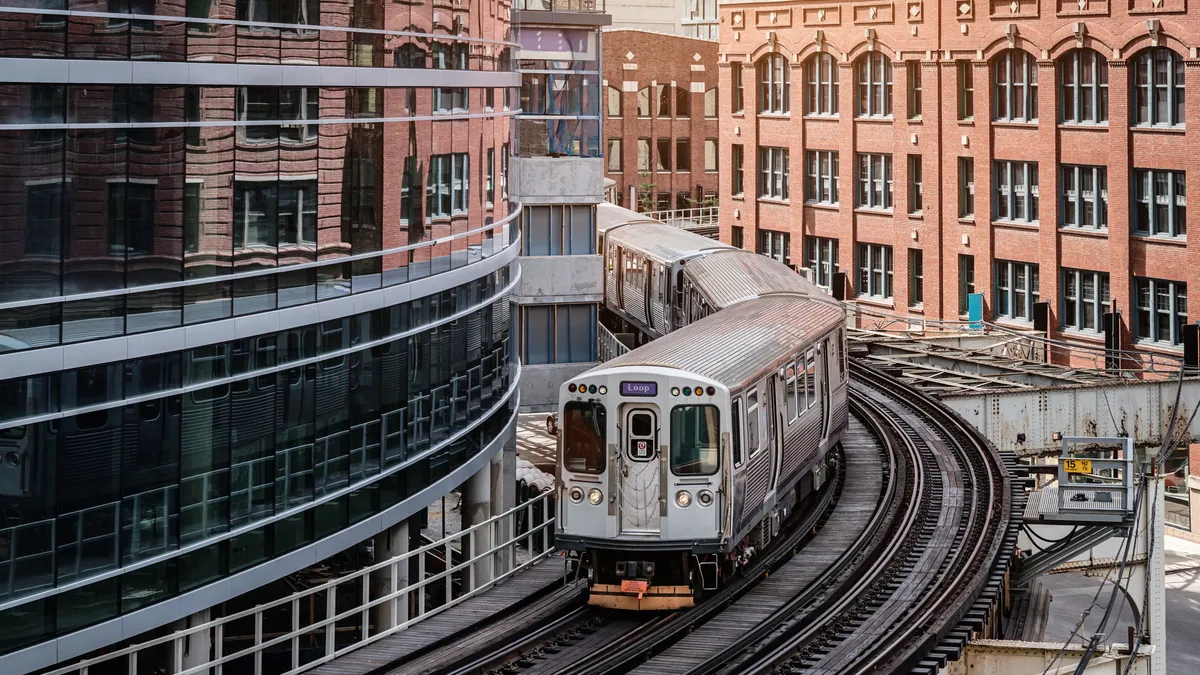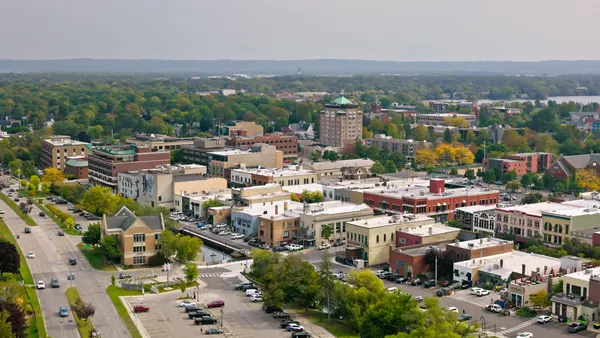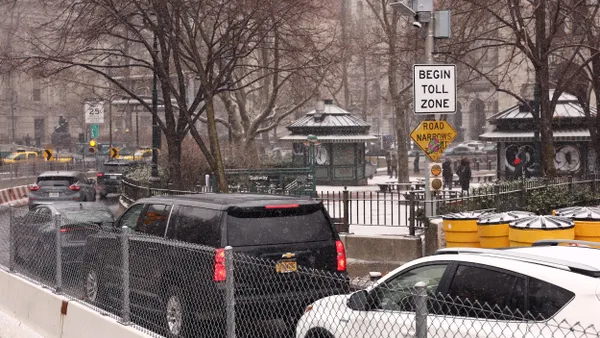UPDATE: June 13, 2025: The board of directors of the Regional Transportation Authority of Northern Illinois met in public session Thursday to begin the process of developing its 2026 budget, which will require a 20% cut in operating expenses. The board members agreed to prepare two scenarios: one that uses stopgap funding if it gets passed by the state legislature this year and an alternative without new funding.
Board members pointed out that while the 2026 budget gap is over $770 million, it will grow to $1.2 billion in 2027 without additional funding. Further, state law requires the Chicago Transit Authority, Metra and the Pace suburban bus service to cover 50% of the transit system’s operating expenses from fares and ancillary revenues — a requirement that may be unique among U.S. transit systems, RTA says. As these agencies are only achieving 40% recovery, the state could withhold funds equal to the amount of the shortfall, further exacerbating the RTA’s financial situation, an RTA executive said at the meeting.
The RTA board said it would release the guidelines for each of its agencies' boards to follow in planning their respective budgets in time for the mandated Sept. 15 deadline for the RTA to adopt funding amounts and recovery ratios.
Dive Brief:
- Chicago-area residents may see up to a 40% cut in public transit after the Illinois state legislature failed to cover an estimated $770 million funding gap starting next year.
- The Regional Transportation Authority of Northern Illinois, which oversees financing and planning for three Chicago-area transit agencies, warned in March it faces a fiscal cliff in 2026 as pandemic-era relief funds run out.
- The Illinois General Assembly ended its spring legislative session May 31 without addressing the funding gap.
Dive Insight:
While the RTA, along with many other transit agencies, received federal funding during the COVID-19 pandemic to help them get through a downturn in ridership, those funds are rapidly running out. The RTA warned as early as 2022 that its agencies would hit a fiscal cliff in 2026. Those agencies include the Chicago Transit Authority, Metra commuter rail and Pace suburban bus services.
The proposed cuts could eliminate almost 3,000 transit jobs, the RTA said. On Sunday, the Labor Alliance for Public Transportation said in a statement that “transit riders and workers alike are left concerned about the future of our communities.” The labor group added that it would “continue to fight for the public transportation system that all Illinoisans deserve.”
The RTA said in a March news release that it would begin planning for cuts “immediately following the end of session if sustainable funding is not secured.” Service on at least four CTA rail lines could be suspended on all or a portion of their routes, with train frequencies across the network cut by 10% to 25%. As many as 74 of its 127 bus routes could be eliminated. Metra commuter rail service would be cut by 40%, and all weekend service on the suburban Pace bus network could be eliminated, the RTA said.
“CTA, Pace and Metra will now start planning 40% service cuts for their systems because they legally cannot plan service based on funding they aren't certain to have,” an unidentified spokesperson for Better Streets Chicago, a transportation advocacy group, said in a video post on BlueSky.
While RTA begins planning service and job cuts, it said it would continue to work with the legislature.
“We are grateful for the months of work of the General Assembly toward both funding and reform for the region’s transit system,” the RTA said Sunday. “It’s clear that many in both the House and Senate support transit, and our intention is to build on that shared support to identify the funding needed to avoid devastating cuts and disruption for everyone in Northeast Illinois.”












